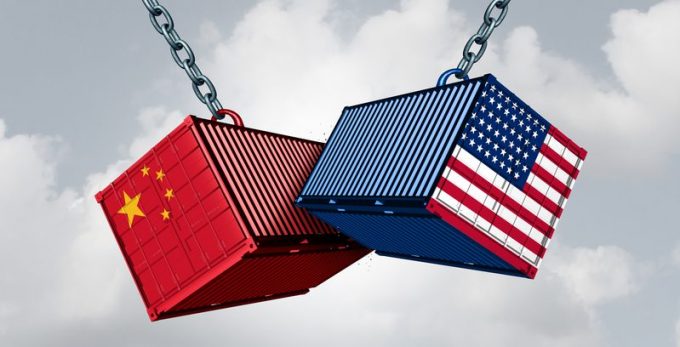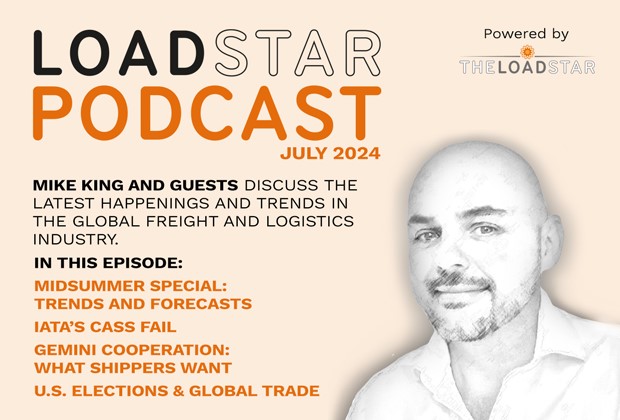
As carriers and forwarders scramble to complete their preparations for the coming peak season, doubt is rising if the widely anticipated surge in volumes may be the last hurrah for buoyant transpacific trade.
Concern is fuelled by a report that US president Trump intends to turn up the heat in the stand-off with China.
Apparently he is poised to slap tariffs on $200bn worth of Chinese goods on top of the duties levied on US imports from the Asian country so far.
According to a report in Bloomberg News, the US president is bent on authorising the new tariffs as soon as the public comment period ends on September 6. This round would see duties of 25% imposed on consumer items including technology products, apparel, bicycles and building products.
The news pushed down the Chinese yuan as well as the US dollar and US treasury yields and sent American stocks lower. The S&P 500 Index, the Dow Jones Industrial Average and the Nasdaq Composite Index dropped 0.4%, 0.5% and 0.3% respectively.
Washington’s stance in the trade dispute has hardened in recent months, and negotiations have gone nowhere, with the American side indicating that this is not the time to talk.
Concern about the conflict has been rising among US shippers and importers, noted Neel Shah, senior vice-president, global air freight of Flexport.
“As this drags on and tariffs become regular fixtures, companies will look to diversify their supply chains. Some are looking to relocate activities to North America, but for many other economies in South-east Asia look appealing”, he said, pointing to Vietnam, Malaysia and Thailand.
According to the International Air Transport Association, in an otherwise healthy global economy the downside of risk has gone up.
“The tariff war and increasingly volatile trade talks between the world’s two largest trading nations are rippling across the global economy, putting a drag on both business and investor sentiment,” said director general Alexandre de Juniac.
Roger Samways, vice-president of cargo sales at American Airlines, has not seen any signs of an impact from tariffs on business across the Pacific so far, nor any uptick caused by a rush of shippers trying to move goods before tariffs kicked in. However, he is wary that the picture may change.
If more tariffs targeting a larger number of commodities are introduced, ultimately that would likely have an impact, he warned.
Mr Shah said that for the most part, the repercussions from tariffs would play out further down the road, as it takes time to reconfigure supply chains. For the near future he does not expect to see many repercussions.
“I think there will be some impact through this peak, but we’re not going to see a wholesale impact. That will be in 2019,” he added.
Many players have adopted a wait-and-see attitude. Albert Saphir, president of supply chain consulting firm ABS Consulting, refuses to keep track of negotiations.
“There is just too much stuff going on right now for any one person to keep track of. Just enacted, pending and possible sanction duties are enough to drive anyone crazy, not to speak of impact on exports from the US,” he said.
“For now, I see all this as political noise and once all the dust has settled, and we really know what is what, we can take a look at the impact from a practical perspective.”
While uncertainties over the trade dispute have caused some customers to delay their volume forecasts, demand from others had been going strong, Mr Shah noted.
“I expect a pretty good peak season,” he said, adding that capacity would be tight. Companies that have not secured enough capacity to cover 90% of their volume will have a hard time finding sufficient space, he warned.
Flexport has recently stepped up its dedicated freighter capacity across the Pacific. Mr Shah reckons that dedicated all-cargo capacity will be a regular fixture for the company.






